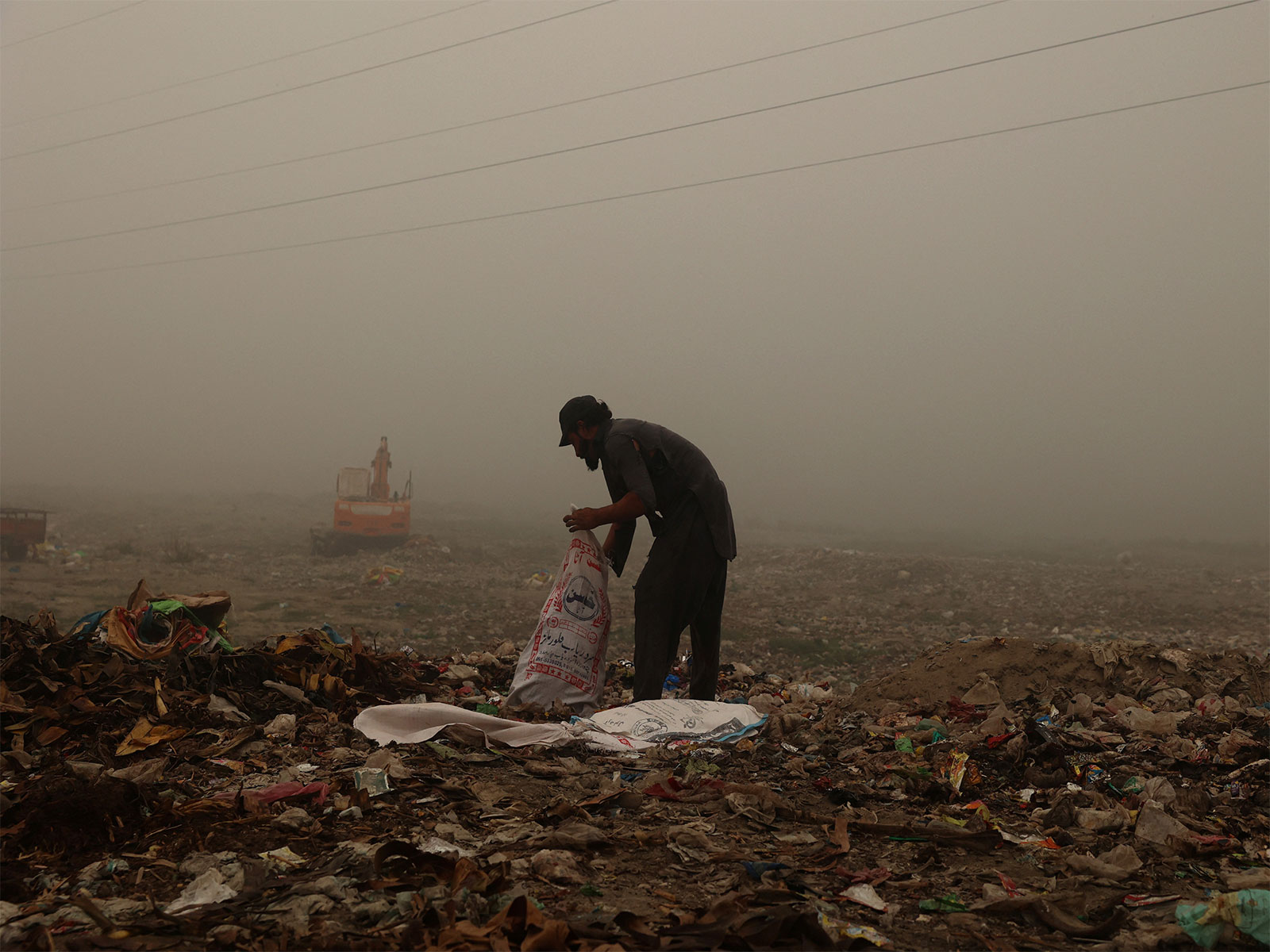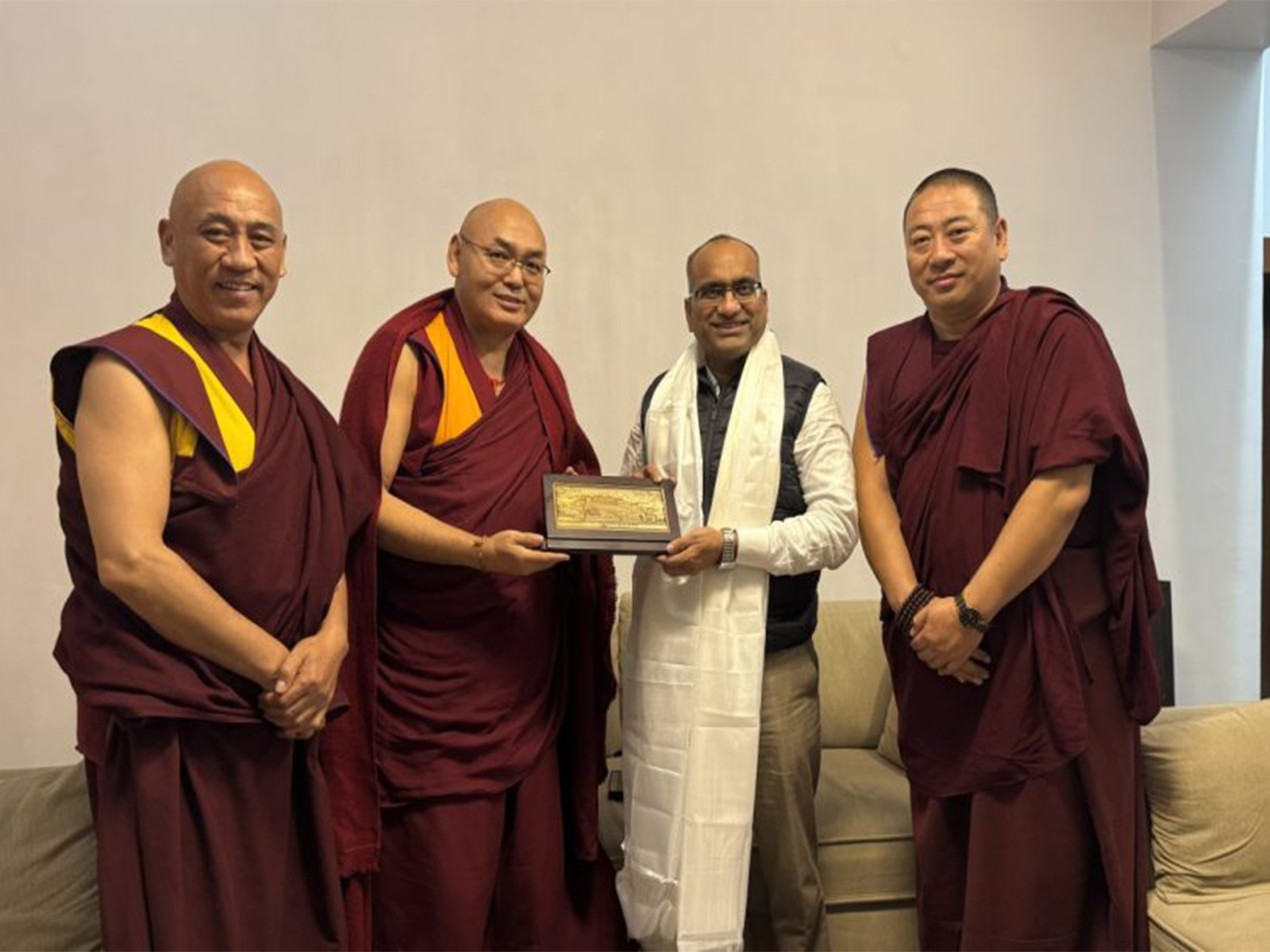Jailed activist Narges Mohammadi decries "tyrannical" Iranian regime in Nobel acceptance speech
Dec 10, 2023

Oslo [Norway], December 10 : A strong message against the "tyrannical" and "despotic religious government" of Iran echoed in Oslo on Sunday, as the children of jailed Iranian human rights activist Narges Mohammadi delivered her message while accepting the Nobel Peace Prize on her behalf, New York Times reported.
Since Mohammadi (51) is incarcerated inside Evin Prison in Iran, her 17-year-old twin children, Kiana Rahmani and Ali Rahmani, accepted the medal and diploma on her behalf and read out a speech she had prepared.
In the speech, which was greeted with a standing ovation, Mohammadi described the "undemocratic ways" of the Islamic republic, its "oppressive rules" mandating the Hijab for women, and the women-led uprisings that shook the country last year.
https://x.com/NobelPrize/status/1733850331342143658?s=20
"I write this message from behind the tall and cold walls of a prison," she said in her speech, making a plea for a "globalization of peace and human rights" in a world where "authoritarian governments" continue to commit abuses against their people.
She warned that human rights violations perpetrated by authoritarian governments had broader consequences, including migration, unrest and growing terrorist threats.
"In the globalized world, either human rights will become respected internationally, or human rights violations will continue to spread across state borders," she said.
In her speech, the Iranian human rights activist also talked of the "soul-crushing suffering resulting from the lack of freedom, equality, and democracy" in her country, perpetrated by a "despotic religious government".
"Tyranny turns life into death, blessing into lament, and comfort into torment," she said.
Notably, the Iranian regime has long tried to silence and punish Mohammadi for her activism and she is currently serving a long prison sentence for "spreading anti-state propaganda", according to the New York Times.
A portrait of Mohammadi hung on the wall of Oslo's city hall during the ceremony, which included performances by Iranian musicians.
Meanwhile, Mohammadi's family announced on Saturday that she had begun a hunger strike to protest the violation of human rights in Iran and the treatment of the Baha'i religious minority there. She has previously suffered severe health problems in prison, including a heart attack, the New York Times reported.
Last month, she held another hunger strike to protest the refusal of prison authorities to take her to a hospital for treatment for two blocked coronary arteries when she refused to wear the mandatory hijab to go there.
Kiana Rahmani, the daughter of the Nobel laureate said that being able to deliver the speech at the ceremony gave her a feeling of connection with her mother.
"Her own words in my hands," she said in an interview with the Nobel Peace Center on Saturday. "It is really nice to finally have something of my mother."
Mohammadi's children have not seen their mother since 2015 -- when they fled to France -- and they have been unable to speak with her for two years after Iranian prison authorities banned her from phone contact with them, the New York Times reported citing PEN America, a free-speech group.
Rahmani also read out a letter written by Mohammadi which she wrote after receiving the prize. In that, she talked about her life and activism, and how as a 9-year-old, she heard her mother mourn the execution of her niece; at 19, she was jailed for wearing an orange coat.
"From our very childhood we are exposed to the domination, blatant and hidden violence, tyranny, and discrimination," Mohammadi's message read.
She also recalled the day her Nobel announcement was broadcasted in the women's ward at Evin Prison and her cellmates chanted one of the popular slogans of the nationwide protests that erupted last year: "Woman, Life, Freedom!"
Mohammadi further said the award marked a turning point in empowering protest and social movements worldwide as forces for change.
Despite her detention, she has remained a powerful voice promoting human rights in Iran and was awarded the Nobel Peace Prize in October for her fight against the oppression of women in Iran and promoting freedom and human rights, the New York Times reported.
Last year, major protests rocked Iran after a young woman, Mahsa Amini, died in the custody of the country's morality police after being accused of failing to wear a hijab 'properly'. During that episode, Mohammadi organized demonstrations inside the prison.
"Victory is not easy," Mohammadi's message read. "But it is certain."



















